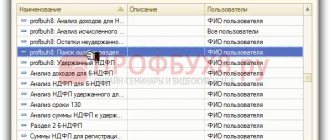The largest number of employees in any organization go on vacation during the summer. A sharp increase in the workload of an accountant can provoke violations. We will tell you in this article what errors may be revealed by the results of internal and external checks.
The right to annual paid leave is one of the fundamental constitutional rights of citizens. It is guaranteed to all persons working under an employment contract (Clause 5, Article 37 of the Constitution of the Russian Federation). In accordance with Art. 114 of the Labor Code of the Russian Federation, employees are granted annual leave while maintaining their place of work (position) and average earnings. The general rules for calculating average earnings for vacation pay are approved by Art. 139 of the Labor Code of the Russian Federation and the Regulations on the specifics of the procedure for calculating average wages, approved by Decree of the Government of the Russian Federation of December 24, 2007 No. 922 (hereinafter referred to as Regulation No. 922). In accordance with this document, to calculate the amount of vacation pay, the accountant must:
- determine the duration of vacation;
- calculate average daily earnings.
Note that when performing the actions listed above, the probability of making a mistake is highest at the second stage.
What are the mistakes when calculating vacation pay?
Errors in calculating vacation pay are common.
This is explained by the peculiarities of calculating vacation payments associated with determining the average daily earnings. The complexity of the formula and various nuances in determining indicators for it are the main reason that in practice an accountant misses something and receives an error in the amount of vacation pay. Conventionally, the causes of errors can be grouped into the following groups:
- The period included in the calculation is incorrectly defined. For example, the calculation included the time spent by the employee on sick leave, or downtime due to the fault of the employer. The opposite version of the error is also possible - when the calculation did not take into account the days that should fall there.
- The income included in the calculation is incorrectly determined. For example, it included one-time incentive payments (not provided for by the local wage system) or financial assistance. This error also has a reverse version. For example, accountants often do not include one-time remunerations based on the results of work for the year or for length of service in the calculation of average earnings, although such amounts as a general rule should be included (clause 15 of Regulation No. 922, approved by Decree of the Government of Russia dated December 24, 2007).
- Technical errors. Such errors are the downside of automating the accounting process. At the moment of counting, something went wrong, and they saw the error later.
Summarizing the above, we can conclude that, for the purpose of correcting errors in the calculation of vacation pay, they can be divided into two groups:
- errors that led to underpayment of vacation pay and related taxes;
- mistakes that led to overpayment of vacation pay and taxes on them.
The procedure for correction will depend on whether the vacation pay was initially accrued more or less than needed.
A labor inspector in the Nizhny Novgorod region answered individual questions from taxpayers related to the error in granting leave. V. I. Neklyudov. Find out the opinion of the official at ConsultantPlus.
If you do not have access to the K+ system, get demo access for free.
Error 2. Inclusion in the calculation of periods that are not included in the calculation
In accordance with clause 5 of Regulation No. 922, the calculation period should not include the time when the employee:
- had the right to average earnings in accordance with labor legislation (was on vacation or a business trip). An exception is breaks for feeding the child;
- received benefits for temporary disability or maternity benefits;
- did not work due to downtime due to the fault of the employer or for reasons beyond the control of management or staff;
- was released from work for other reasons provided for by law (for example, leave without pay).
As follows from clause 5 of Regulation No. 922, if one or more months of the billing period are not fully worked out or the time when the employee was accrued average earnings is excluded from this period, you must use the formula given in clause 10 of Regulation No. 922. In this case, the average daily earnings are calculated by dividing the amount of actually accrued wages for the billing period by the sum of the average monthly number of calendar days (29.3), multiplied by the number of complete calendar months, and the number of calendar days in incomplete calendar months.
The number of calendar days in an incomplete calendar month is calculated by dividing the average monthly number of calendar days (29.3) by the number of calendar days of this month and multiplying by the number of calendar days falling on the time worked in this month.
Example 2
When checking the correctness of salary expenses, the fact of excessive accrual and payment of vacation pay was established. So, an employee going on vacation lasting 28 cal. days from 04/01/2016, the amount of vacation pay to be paid was incorrectly calculated. The calculation period from 04/01/2016 to 03/31/2016 included the period when the employee was on sick leave in April 2015 (from 04/01/2015 to 04/05/2015). The monthly salary of an employee is 18,000 rubles.
The auditor made the following calculation in the analytical table.
| Index | Settlement actions |
| According to the audited institution | Average earnings were 614.33 rubles. (RUB 18,000 x 12 months / 12 months / 29.3 days). The actual amount of vacation pay is RUB 17,201.24. (RUB 614.33 x 28 cal days). |
| According to the control body | Salary (excluding temporary disability benefits) for April 2015 is 15,428.57 rubles. (RUB 18,000 / 21 working days x 18 working days). Average earnings will be 615.56 rubles. ((RUB 18,000 x 11 months + RUB 15,428.57) / ((29.3 cal days x 11 months) + (29.3 / 30 x 25) days)) The amount of vacation pay will be 17,235.68 rubles. (RUB 615.56 x 28 cal days) |
| Result of the audit (overpayment or underpayment) | The amount of underpayment for vacation is 34.44 rubles. (17,235.68 – 17,201.24) |
When calculating vacation pay, it may turn out that the employee did not have actually accrued wages or actually worked days in the billing period, or that this period consisted of time periods excluded from the billing period in accordance with clause 5 of Regulation No. 922. In this case, the average earnings should be determined based on from the amount of wages actually accrued for the 12 calendar months preceding the billing period (clause 6 of Regulation No. 922).
Example 3
The employee of the institution is granted regular leave from 08/01/2016. In the billing period from 08/01/2015 to 07/31/2016, he was on parental leave for up to three years. Based on what period should vacation pay be calculated?
According to clause 6 of Regulation No. 922, to calculate vacation pay, you should take the employee’s salary prior to her going on maternity leave or child care.
General rules for correcting errors in vacation pay
The rules for correcting errors and the procedure for disclosing information about them in accounting and reporting are established in PBU 22/2010 (approved by order of the Ministry of Finance dated June 28, 2010 No. 63n).
According to paragraph 2 of this standard, inaccuracies in calculations are qualified as an incorrect reflection (non-reflection) of the facts of economic activity, that is, as an error.
Errors may be significant or insignificant. This is determined by how the error affected the overall indicators of the reports in which it was included.
Skewed indicators associated with an error in accruing vacation pay to 1 or 2 employees should hardly be considered a significant error.
For minor errors, PBU 22/2010 provides the following correction procedure:
- The error must be corrected (correct accounting entries must be made) in the month in which it was discovered.
- Profit or loss resulting from correction of an error must be reflected as part of other income or expenses of the same period (in which it was corrected).
How to correct an error when calculating vacation pay upward
An error in vacation pay “plus” for an employee means that:
- The employee received “extra” money.
- An error in vacation pay resulted in an overestimation of personal income tax and contributions.
- The error resulted in an overestimation of expenses taken to reduce the base for profit or other tax, where the base is calculated on the basis of “income minus expenses.”
These three points need to be corrected in accounting and tax accounting.
In accounting, in the month the error was discovered, adjustment entries should be made to reduce the accrued amounts for vacation pay and contributions (reversal).
If an ERSV calculation has already been submitted for incorrect amounts, it is better to submit an update for the previous period. So that the balance of settlements with the Federal Tax Service matches the accounting data. If corrections were made in different months of the same quarter, the clarification may not be submitted. Everything will be taken into account in the quarterly calculation.
Personal income tax that is excessively withheld from an employee can be taken into account to reduce deductions from future payments (we are considering a standard situation when the employee simply went on vacation without subsequent dismissal, maternity leave, etc.).
Find out how to reflect overpayments on vacation pay in the 6-NDFL calculation in the Ready-made solution from ConsultantPlus. Trial access to the system can be obtained for free.
The main problem with overpayment of vacation pay is that it cannot be withheld back without the employee’s consent. And the reflection of the result of the adjustment in other income or expenses depends on this.
If the employee agrees to the deduction (the consent must be written), then the amount of the overpayment is withheld from the following payments. In this case, no differences in attribution to income (expenses) arise. All “surpluses” are taken into account in the calculations or compensated.
If the employee does not agree to the deduction, then the overpayment of vacation pay will have to be considered as an expense (loss) in accounting and reflected in expenses in the month when the error was discovered. It should be remembered that such expenses cannot be taken into account in tax accounting (there is no economic justification).
Vacation pay was accrued less than necessary
The additional accrued amount of vacation pay must be paid to the employee. Wherein:
- insurance premiums are charged for the amount of underpayment;
- the amounts of additional payments and additionally assessed insurance premiums are included in expenses, reducing the tax base of the period in which the error was discovered;
- from the additional accrued amount is withheld and paid to the personal income tax budget;
- If necessary, updated reporting on insurance premiums is submitted.
Such an error on vacation pay does not affect the personal income tax of the previous period - income tax is withheld when the additional accrued amount is paid to the employee and is reflected in Calculation 6-NDFL of the current period.
Example
The employee was paid vacation pay in March 2021, but in May it turned out that due to an incorrectly calculated average salary, he was credited with 950 rubles. less. Accountant:
- will make additional accrual of vacation pay in May 2021 in the amount of 950 rubles,
- will add additional insurance premiums in the amount of 285 rubles. (950 x 30%) and contributions for “injuries”;
- from 950 rub. will withhold personal income tax - 124 rubles. (950 x 13%) and will pay it to the budget no later than 06/01/2020, if additional accrued vacation pay is paid to the employee in May;
- the amounts of additional accruals will be reflected in the DAM and 6-NDFL reports for the first half of 2021.
How to correct a mistake in vacation pay to a lesser extent
How to correct an error in vacation pay in case of underpayment of vacation pay? The procedure is somewhat simpler than described above.
A negative error means that:
- the employee did not receive enough money;
- personal income tax and contributions were underpaid;
- the error resulted in an understatement of expenses taken to reduce the base for profit or other tax, where the base is calculated on the basis of “income minus expenses.”
Additional vacation pay and the deductions due from them must be additionally accrued in accounting in the month the error was discovered. You can immediately apply it to other expenses (immediately attributed to account 91).
Clarifications should be made if the ERSV has already been submitted. The amount not paid additionally to the employee and personal income tax to the budget must be paid additionally.
Error in vacation pay in 6-NDFL
Is it necessary to correct an error in vacation pay in 6-NDFL if the calculation has already been submitted based on the results of the period with an error?
It turns out there is no need. If an error was made, say, in the second quarter, and was discovered in the third, then the difference will be recalculated in the third. That is, the payment of vacation pay and the recalculation of vacation pay were made on different dates.
Therefore, in 6-NDFL for the third quarter, it is enough for the accountant to show the correct amount of accruals taking into account the corrected vacation pay in section 1 of 6-NDFL and, if there was an additional payment of vacation pay in the third quarter, reflect it in section 2 of 6-NDFL (in lines 100−140) .
Error No. 3. Salary changes are not taken into account in the calculation
If there was a general increase in wages at the enterprise (in a branch of the organization or a structural unit), this must be taken into account when calculating vacation pay. Recalculation is not performed for single increases in earnings (Letter of the Ministry of Labor dated May 12, 2016 No. 14–1/B-447). In the event of a salary increase after the pay period, but before the start of the vacation, the employee’s average earnings for the entire pay period are adjusted. If the increase occurred already during vacation, only the part of the average earnings attributable to the period from the date of the salary increase to the end of the vacation is adjusted. This rule is established in paragraph 16 of PP No. 922.
Read: Rules for reflecting vacation pay in 6-NDFL in 2021
Results
Errors in calculating vacation pay must be promptly corrected. To do this, you need to reflect changes in accounting and tax accounting, as well as make corrections to the calculation of insurance contributions, 6-NDFL and 4-FSS if an error is identified in the next reporting period.
Sources:
- Labor Code of the Russian Federation
- Decree of the Government of Russia dated December 24, 2007 No. 922
- PBU 22/2010, approved. By Order of the Ministry of Finance of Russia dated June 28, 2010 N 63n
You can find more complete information on the topic in ConsultantPlus. Free trial access to the system for 2 days.
Vacation pay cannot be less than the minimum wage
From May 1, 2021, the federal minimum wage is 11,163 rubles. In addition, there are regional minimum wages (check yourself with the table in the article). So, the calculated vacation pay for the full vacation period (28 days) cannot be less than the established minimum wage. If the vacation is divided into parts, it is necessary to calculate it in proportion to the days. If the average earnings received were less than the minimum wage, then vacation pay must be recalculated based on the “minimum wage”. Otherwise, the GIT will punish you.







